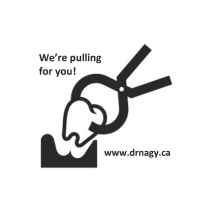RULES of COMPETITION

Ken Goodland - CW's pensive Director of Rugby
Some time back we promised to try to catch up with the club's, very busy Director of Rugby to tease out his thoughts on the newly minted Competitions Committee, Rules of Competition for the 2022 - 23 season. Here we go.....
Ken, our first question to you relates to an overriding observation of the changes, espousing acceleration, and sustenance of improvement of BC rugby. The question is, will these changes really encourage sustainable growth? (e.g. Rugby troubadours, in some cases remunerated, vs ‘home grown’ club pathways, a position the BCRU has espoused for years).
KG It will not affect CW significantly as we have always tried to develop our own and to attract Canadian grown products, we feel this is the best way to grow the game in Canada. We have always supported University rugby and we are fortunate to have many graduated players return to us while also benefiting from overseas players joining our club, improving the standard of play. When you live in a place like Victoria there inevitably are people who want to come and we offer a great environment full of opportunities for every level of player.
CW. How do you think the changes will make Rugby a “more accessible sport for all”?
KG The changes will hopefully bring about more players playing rugby by playing all kinds of games and competitions. From the top level attracting players from all over, to the lower levels having the flexibility to be more inclusive than before. The old adage about rugby, needs to hold true in these days of professionalism and changing attitudes, there is a place for everyone! I think the intent of inclusivity should be paramount for all clubs and if the community game is not reflecting the best intentions of the sport we will struggle to maintain relevance. I think clubs need to never lose sight of their purpose, and that to me is providing opportunities for everyone to try and play this great game.
CW. The term “player welfare at the community level” is an awkward one to come to grips with. What do you understand by it?
KG I think every club has a duty of care to ensure their players remain healthy and fit to play at their best and enjoy the game. Where people get tangled up is when they put wins before the best interests of the athletes’ health. This happens even at the community level unfortunately, and hopefully the changes around unlimited subs, modified numbers etc., can provide the flexibility the clubs need to play the games without fear of unnecessary repercussions like losing points for having ten instead of 12 or 13 players, or playing an injured player because they can’t make another sub, for example. CW prides itself on our approach to player welfare by maintaining a zero tolerance policy on stand down periods for concussions and always providing top level care with a great team of therapists and medical staff.
CW. Why do you think there are any restrictions at all on “capped, carded or contracted players”? Are we not trying to raise our levels of the game?
KG Personally, I don’t believe we should have any restrictions at the premier and reserves level, specifically for the capped or carded and contracted players. I find it odd that a league trying to be the best in the country puts a limit on its own domestic players. Many Canadian MLR players are “bench-warmers” and not getting much playing time, plus the Fall season is a great way for them to get some game time and training before they head off in January to their professional season. And I have seen a real positive change in attitude when it comes to the sevens players in that, when not selected they are being released to play for their clubs. This is exactly how it should be and there should be no restrictions on a player dressing for their club when available. No matter when they played for their country.
CW. The idea of fewer than 15-aside makes sense however the “24 hours notice” seems to have some complexities attached, given the travel distance clubs need to make, both on VI and the mainland? Perhaps dispensations will be permissible. Do you have any thoughts about this stipulation?
KG This idea may need further discussion and massaging. There are practical limitations, often caused by our winter season and aspects of flexibility need to be clarified. Penalties sanctioned on any game cancellations should be lifted or at least, not too heavy-handed which would defeat “flexibility”. I think however, that many clubs are reasonable when it comes to potential cancellations and communicating that. I don’t see it being a huge issue.
CW. With the return of McKechnie Cup play and a “focus on working with players that are on the pathway….”, do you think this will exclude “import players”?
KG I may be in minority here, but I hope not! I am happy to see a return to a very clear pathway, i.e., club, McKechnie Cup, BC Bears, etc. I think selecting “import players” over Canadian players for these competitions would be counter productive. If it’s a Canadian pathway it should remain for Canadian eligible players.
CW. Finally, John Tait’s (Technical Director), statement seems to this pundit to be flowery language to say that those clubs that are in a financial situation to attract players “no matter where they come from”, will prevail as Championship winners. Is this your perception? Would you care to comment? The elitism this would create may not be for the best. We understand should you wish to not to offer an opinion.
KG I didn’t read it that way. I think he meant that if a club was able to support players financially and draw them in from other places, it would improve the quality of the league. We have certainly benefited from “import” players in the past and will in the future; we live in Victoria; we have contacts in many countries and its sometimes just a natural result of people travelling. What we can’t do as an amateur union is promote an arms race that forces a club to spend unnecessarily just to keep up. Winning a championship is always nice and we will be competitive, but to win at the expense of your own club’s development is unsustainable. Eventually the money runs out! Ultimately, it’s up to clubs how they run their squads but we at CW believe a long-term vision through Minis, Juniors and developmental men’s and women’s programs will be a better servant to the Canadian game and our own future. We want to be around for future generations and keep building on our traditions. This is what makes us competitive, and I think attractive to players looking for a fun, inclusive environment to enjoy their rugby.
CW. Ken, these have been very direct questions and we realise you have a responsibility to the club’s Board in your role as DoR and may understandably decline to answer any question. For this pundit, development, growth, and sustainability of the BC game are vitally important to the code. I am not sure that these changes will ensure all these aspects.
KG One thing I would like to see is consistency and patience to see out a long-term vision. That can be a hard balance with changing demographics, competing interests for young athletes, and of course the professionalism and different attitudes seeping into the community game. But I do think some of these efforts will have positive results. However, if we chop and change every few years for superficial reasons, as we are seeing in the junior age grade bands moving again, then we never get to see things settle and provide stability to the clubs so they can plan long term. Also, I want us to be positive about the people doing the right thing at the grass roots level regardless of what we think of decisions made at the governance level. It’s this positivity and energy that so many have for the game that will keep it sustainable. It’s the best game in the world and I think if we stay true to some of the amateur ethos that make it special, while combining with new approaches to training and playing to build higher skills and an exciting product, then we will have a great future.
CW. Ken, thanks for your time and insight into these questions.

Ken, the player. Ken, the coach.




























